Best Shoes for Morton's Neuroma
Solutions for Sufferers of Morton's Neuroma

Medically reviewed by
Dr. Obianuju Helen Okoye, MD
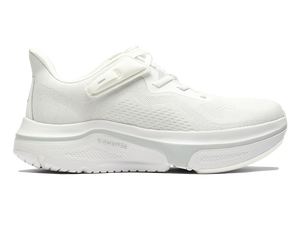
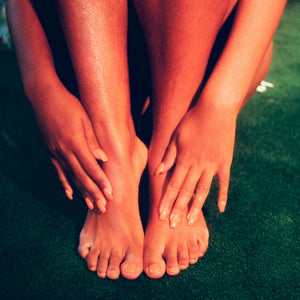
What is Morton's Neuroma?
Morton's neuroma is a painful condition that affects the ball of your foot, most commonly the area between your third and fourth toes. It occurs when the tissue around one of the nerves leading to your toes thickens, causing a sharp, burning pain in the ball of your foot.
Morton's neuroma affects women more often than men, likely due to women wearing tight, narrow shoes or high heels that put pressure on the toes. It can also affect runners, with the repetitive pounding of the feet causing irritation to the nerves.
So what are the most prevalent symptoms to look out for?
Exercises for Morton's Neuroma
Certain exercises can help alleviate the pain and pressure associated with Morton's neuroma. Here are a few to try:

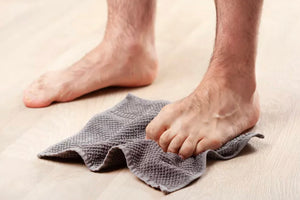
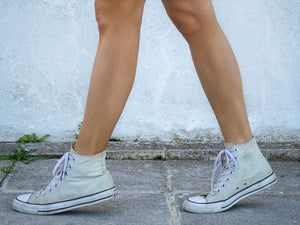
Features of Shoes for Morton's Neuroma
Footwear designed for individuals with Morton's neuroma has specific features to help alleviate pain and prevent the condition from worsening. Here's what to look for in shoes for Morton's neuroma:
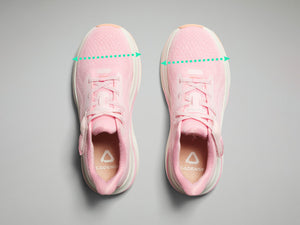
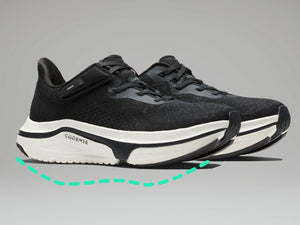
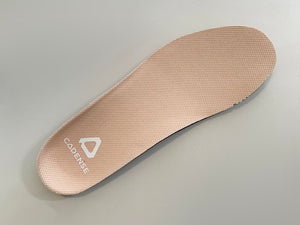
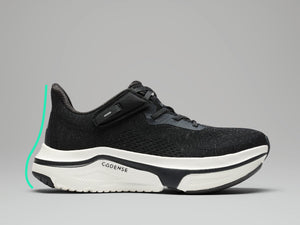
Frequently Asked Questions
Can Morton's Neuroma Be Cured?
While Morton's Neuroma can't be reversed once the nerve thickening has occurred, it can be effectively managed and its symptoms can be significantly reduced or eliminated. Early intervention typically yields the best outcomes.
How Can I Relieve Pain from Morton's Neuroma?
Immediate pain relief for Morton's Neuroma can be achieved through several methods. Short-term solutions include icing the area, taking over-the-counter anti-inflammatory medications, and wearing wider shoes. Metatarsal pads or cushions can help redistribute pressure away from the painful area. Regular foot stretches, massage, and rest from aggravating activities also provide relief.
Will I Need Surgery for Morton's Neuroma?
Surgery is typically considered a last resort for Morton's Neuroma, only after conservative treatments have failed. Most patients find relief through non-surgical methods like proper footwear, orthotics, cortisone injections, or physical therapy. However, if pain persists for more than 6-12 months despite these treatments, or if it significantly impacts daily activities, surgical intervention might be recommended.
What Kind of Doctor Treats Morton's Neuroma?
Morton's Neuroma is primarily treated by podiatrists (foot specialists) and orthopedic surgeons who specialize in foot and ankle conditions. Initially, you might start with your primary care physician, who can provide a referral to these specialists. Physical therapists and sports medicine doctors may also be involved in your treatment plan, especially if the condition is related to athletic activities or requires rehabilitation exercises.
Can I Still Run with Morton's Neuroma?
Running with Morton's Neuroma is possible but requires careful management and modifications. Many runners can continue their activity by using wider toe-box shoes, metatarsal pads, and proper orthotics.
Are These Shoes Good for Bunions Too?
Shoes that work well for Morton's Neuroma often benefit bunion sufferers too, as both conditions require similar features: a wide toe box, good arch support, and minimal pressure on the forefoot.
Do I Need Custom Orthotics for Morton's Neuroma?
While not everyone with Morton's Neuroma needs custom orthotics, they can be highly beneficial for many patients. Over-the-counter metatarsal pads or arch supports might suffice for mild cases. However, custom orthotics provide personalized support that addresses your specific foot mechanics and pressure points.

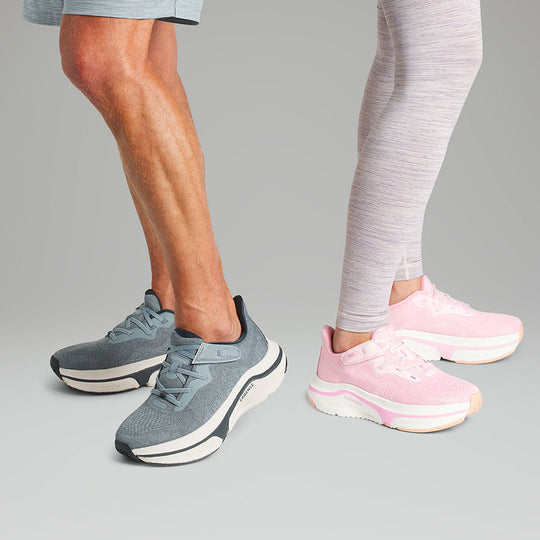







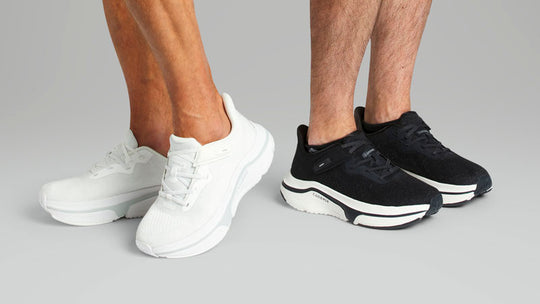
![[color: white] Original Women's Adaptive Shoe](http://cadense.com/cdn/shop/files/CadenseOriginalWomensWhite-001.jpg?crop=center&height=300&v=1694622872&width=300)
![[color: white] Original Women's Adaptive Shoe](http://cadense.com/cdn/shop/files/CadenseOriginalWomensWhite-001.jpg?crop=center&height=200&v=1694622872&width=200)
![[color: black] Original Women's Adaptive Shoe](http://cadense.com/cdn/shop/files/CadenseOriginalWomensBlack-001.jpg?crop=center&height=200&v=1721399269&width=200)
![[color: light blue] Original Women's Adaptive Shoe](http://cadense.com/cdn/shop/files/CadenseOriginalWomensLightBlue-001.jpg?crop=center&height=200&v=1721399269&width=200)
![[color: pink] Original Women's Adaptive Shoe](http://cadense.com/cdn/shop/files/CadenseOriginalWomensPink-001.jpg?crop=center&height=200&v=1721399269&width=200)
![[color: champagne] Original Women's Adaptive Shoe](http://cadense.com/cdn/shop/files/Womens-CHAMPAGNE-T1.jpg?crop=center&height=200&v=1723641987&width=200)
![[color: all black] Original Women's Adaptive Shoe](http://cadense.com/cdn/shop/files/AllBlack-Womens-T1.jpg?crop=center&height=200&v=1732140729&width=200)
![[color: black] Original Women's Adaptive Shoe](http://cadense.com/cdn/shop/files/CadenseOriginalWomensBlack-001.jpg?crop=center&height=300&v=1721399269&width=300)
![[color: light blue] Original Women's Adaptive Shoe](http://cadense.com/cdn/shop/files/CadenseOriginalWomensLightBlue-001.jpg?crop=center&height=300&v=1721399269&width=300)
![[color: pink] Original Women's Adaptive Shoe](http://cadense.com/cdn/shop/files/CadenseOriginalWomensPink-001.jpg?crop=center&height=300&v=1721399269&width=300)
![[color: champagne] Original Women's Adaptive Shoe](http://cadense.com/cdn/shop/files/Womens-CHAMPAGNE-T1.jpg?crop=center&height=300&v=1723641987&width=300)
![[color: black] Original Men's Adaptive Shoe](http://cadense.com/cdn/shop/files/CadenseOriginalMensBlack-001.jpg?crop=center&height=300&v=1694621753&width=300)
![[color: black] Original Men's Adaptive Shoe](http://cadense.com/cdn/shop/files/CadenseOriginalMensBlack-001.jpg?crop=center&height=200&v=1694621753&width=200)
![[color: slate] Original Men's Adaptive Shoe](http://cadense.com/cdn/shop/files/CadenseOriginalMensSlate-001.jpg?crop=center&height=200&v=1721401800&width=200)
![[color: white] Original Men's Adaptive Shoe](http://cadense.com/cdn/shop/files/CadenseOriginalMensWhite-001.jpg?crop=center&height=200&v=1721401800&width=200)
![[color: all black] Original Men's Adaptive Shoe](http://cadense.com/cdn/shop/files/AllBlack-Mens-T1.jpg?crop=center&height=200&v=1732139020&width=200)
![[color: slate] Original Men's Adaptive Shoe](http://cadense.com/cdn/shop/files/CadenseOriginalMensSlate-001.jpg?crop=center&height=300&v=1721401800&width=300)
![[color: white] Original Men's Adaptive Shoe](http://cadense.com/cdn/shop/files/CadenseOriginalMensWhite-001.jpg?crop=center&height=300&v=1721401800&width=300)
![[color: all black] Original Women's Adaptive Shoe](http://cadense.com/cdn/shop/files/AllBlack-Womens-T1.jpg?crop=center&height=300&v=1732140729&width=300)
![[color: all black] Original Men's Adaptive Shoe](http://cadense.com/cdn/shop/files/AllBlack-Mens-T1.jpg?crop=center&height=300&v=1732139020&width=300)
![[color: white] AERIO Women's Sandal-Slide Hybrid](http://cadense.com/cdn/shop/files/AERIO_WHITE_T1.jpg?crop=center&height=300&v=1744725276&width=300)
![[color: pebble gray] AERIO Women's Sandal-Slide Hybrid](http://cadense.com/cdn/shop/files/AERIO-Grey-T1.jpg?crop=center&height=200&v=1745340964&width=200)
![[color: black] AERIO Women's Sandal-Slide Hybrid](http://cadense.com/cdn/shop/files/AERIO_BLACK_T1.jpg?crop=center&height=200&v=1745344618&width=200)
![[color: white] AERIO Women's Sandal-Slide Hybrid](http://cadense.com/cdn/shop/files/AERIO_WHITE_T1.jpg?crop=center&height=200&v=1744725276&width=200)
![[color: lemonade] AERIO Women's Sandal-Slide Hybrid](http://cadense.com/cdn/shop/files/AERIO_LEMONADE-T1.jpg?crop=center&height=200&v=1745344618&width=200)
![[color: black] AERIO Men's Sandal-Slide Hybrid](http://cadense.com/cdn/shop/files/AERIO_BLACK_T1_17bf8e85-e048-43b3-acba-51e96397c13b.jpg?crop=center&height=300&v=1744727171&width=300)
![[color: black] AERIO Men's Sandal-Slide Hybrid](http://cadense.com/cdn/shop/files/AERIO_BLACK_T1_17bf8e85-e048-43b3-acba-51e96397c13b.jpg?crop=center&height=200&v=1744727171&width=200)
![[color: pebble gray] AERIO Men's Sandal-Slide Hybrid](http://cadense.com/cdn/shop/files/AERIO-Grey-T1_7c266bea-a75f-471f-bbd6-40828952e100.jpg?crop=center&height=200&v=1745355102&width=200)
![[color: white] AERIO Men's Sandal-Slide Hybrid](http://cadense.com/cdn/shop/files/AERIO_WHITE_T1_5836a1a9-8951-4ea5-950c-919c6e572558.jpg?crop=center&height=200&v=1745355102&width=200)
![[color: Deep Lagoon] AERIO Men's Sandal-Slide Hybrid](http://cadense.com/cdn/shop/files/AERIO_Deep-Lagoon-T1.jpg?crop=center&height=200&v=1745355102&width=200)